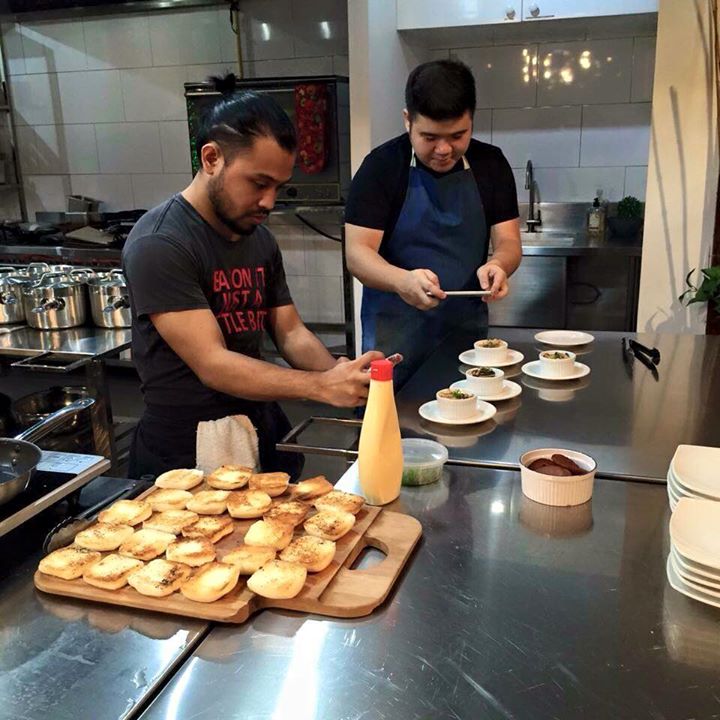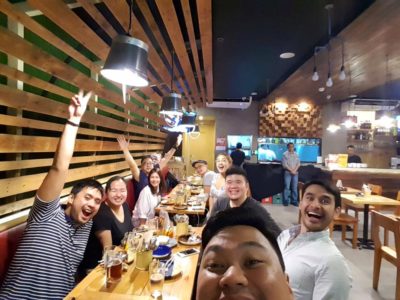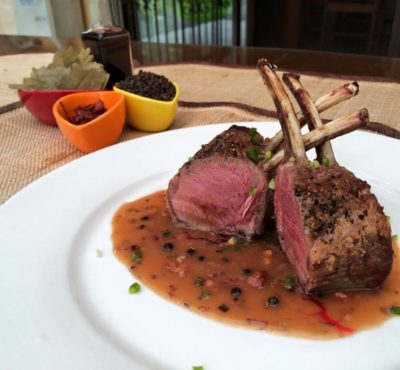
Social media is so important, chefs have learned to use it.
Last December, Benoit Violier, whom many considered one of the world’s best chefs, was found dead, apparently a victim of suicide. As with most of these cases, details and motivations are hard to come by, but there are murmurs that this painful tragedy was yet again caused by an apparently forthcoming downgrade of the chef’s restaurant. While some would shake their heads at how a chef could react so violently to a bad review “grabe naman (that’s too much)” and move on, the story has continued to bother me, now a full two months after. Relationships between chefs, food writers and diners have historically been tenuous and being privileged to find myself a role on all three sides, I feel I need to write about this.
There are already two cases of review downgrades seemingly causing suicides, and we don’t even know how many other stories of chefs closing down restaurants or mentally and emotionally breaking down there are. How many food writers have been quickly branded as haters or click baiters the moment they decide to write a bad review? How many diners have been misguided with imprecise expectations or understandings?
We, and I mean we, as in all three sides of this relationship, need to be mindful. We need to be mindful of what we say, write and believe before this whole triangle of a relationship completely falls apart.
With the restaurant scene lively and vibrant, food writers, traditional media or bloggers alike have suddenly found, on their shoulders, a lot of responsibility. More and more people eat out nowadays, and a lot of them rely on these writers with varying degrees of regularity. Diners refer to papers, websites, social media, blogs and celebrities for opinions on restaurants, using them to determine whether they would visit the restaurant, brave the long lines or relegate the restaurant to the “never visit/not worth it” list. This means that more than ever, honest and reliable food reviews are of utmost importance. It is this truth that sets bloggers, writers and celebrities apart, but it is also this same truth that I believe has caused breakdowns such as possibly Violier’s.
Chefs over that last decade or so, have enjoyed celebrity status previously reserved only for athletes or actors. With that, there is the same tendency, as with athletes and actors, to forget about chef’s humanities.
“One of the things people forget when they are judging a chef and restaurant is that they are judging human beings,” says Chef Hugh Acheson, an American celebrity chef in his own right.

My chef and foodie friends just love to eat
This is where writers, bloggers and now, with the power of social media, diners, need to be mindful with the truth they want to unleash. Great food needs to be given a great review. Bad food needs to be given a bad review. No doubt, but we need to be mindful of how we phrase it. Overstating great or bad food affects a whole host of people. Giving one sentence reviews or incomplete, flippant ones would be irresponsible. Diners draw information from what we write and calling things “the best ever” or “worse than (insert another restaurant)” or casually throwing together a “definitive” list will create an impression on reader’s minds that could affect them so much that they would have preconceived, biased notions or worse, never even give a restaurant a shot. Chefs that are worth their salt, meanwhile, pour their memories, experiences and feelings in the creation and execution of their dishes. Every dish is personal; a piece of them. Overly generic positive reviews could mislead chefs and give them an inflated sense of self. Bad reviews, whether truthful or not, will always be personal attacks. Yes it is our job to prepare food that must be up to par, but it is impossible remove feelings from them. Also, every restaurant is run by people. They are run by people who need to support themselves and their families. Once we are mindful of this, we will find that there are, indeed, more ways to give a bad review than to publicly scathe the chef and the restaurant without giving them proper context or consideration. We don’t need to just not say anything, but we can choose to talk to the chef or manager in private and give the restaurant a second or even third chance before writing a complete restaurant review. We can go ahead and tell the truth; but maybe we’d like to say it in a better, more complete way?

Lamb Chops, Bacon Adobo Sauce
What we chefs need to be mindful of, in return, is how celebrity can cloud the situation. Diners, food writers and bloggers are clients, not admirers, and chefs, in whatever shape or form, are in the service industry. Our only duty as chefs is to feed our clients and make them happy. We have the freedom to choose how we will go about doing this duty, but at the end of the day, we are not great chefs by cooking the most original, most kick ass, most mind-blowing food. We are great chefs when we serve food that our clients love and enjoy. We need to be mindful of their demands, preferences and concerns. It is not their error if they don’t like the taste of our new recipe enhanced with the latest trendy technique or ingredient we found on the internet. We need to see that client reviews, especially the fair and complete ones, are not badges of honor or shards of hate; they are tools. Once we are mindful of this truth, we will take all reviews, good and bad, and use both to enhance our craft. We won’t be brooding in dark corners, breaking down and considering taking our lives.
Diners, the third side of this triangle of a relationship, need to be mindful too. We, as diners, are clients to be served by the other two sides, but we have responsibilities as well. No diner, no matter how many restaurants enjoyed, countries visited and food shows viewed, are omniscient. The best way to enjoy food is still to taste and enjoy it by itself; not comparing it to any of our previous experiences. Furthermore, food will always be a subjective matter. Some food will always be more appealing for others so each review, no matter who writes them, is still colored with subjectivity. Once we are mindful of these as diners, we will find out how futile it would be to dissuade other diners from eating in a place we didn’t like or how unfair it would be to come into a restaurant with too many preconceived notions. We will judge for ourselves how we like a restaurant or not and we will let others do the same.
Let’s get one thing straight here. I am and will forever be an advocate of truth. I will never ask for anyone to be anything less than true, but truth, as liberating as it is, is also tremendously powerful. Our truths affect a host of people and our way of life. Indeed, one of the greatest privileges of living in a free society is the right to say, write or believe what we want. But this powerful privilege is a double-edged, 12 inch chef’s knife. In the same way, we want to be careful when we chop vegetables, we need to be mindful with our truths. If it sounds like being mindful with our truths is a whole lot of work, it is.
Because the truth can hurt and as we have tragically seen, it has killed.